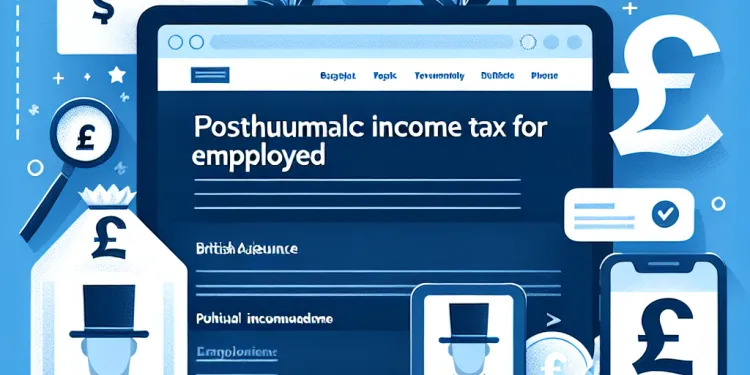
Find Help
More Items From Ergsy search
-
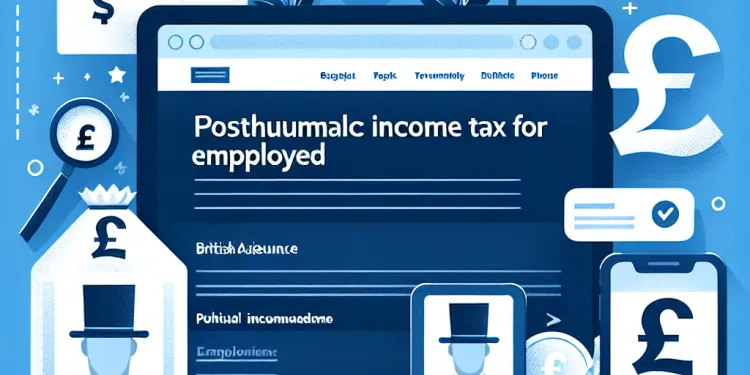
What happens to a deceased’s Income Tax if they were employed?
Relevance: 100%
-

Is it necessary to complete a final tax return for the deceased?
Relevance: 66%
-

Who is responsible for paying the deceased’s tax debts?
Relevance: 60%
-

What should I do if I need help managing the tax affairs of the deceased?
Relevance: 58%
-

Can the executor use the deceased's assets to pay tax debts?
Relevance: 57%
-

What taxes need to be paid from the deceased’s estate?
Relevance: 52%
-

What are HMRC Income Tax Changes in April 2026?
Relevance: 49%
-

What are the HMRC income tax changes coming into effect in April 2026?
Relevance: 49%
-

How does a wealth tax differ from an income tax?
Relevance: 48%
-

Could there be a reduction in the basic rate of income tax by 2026?
Relevance: 48%
-

Do I need to declare my ISA income on my tax return?
Relevance: 47%
-

Will income thresholds for tax reliefs be revised in 2026?
Relevance: 47%
-
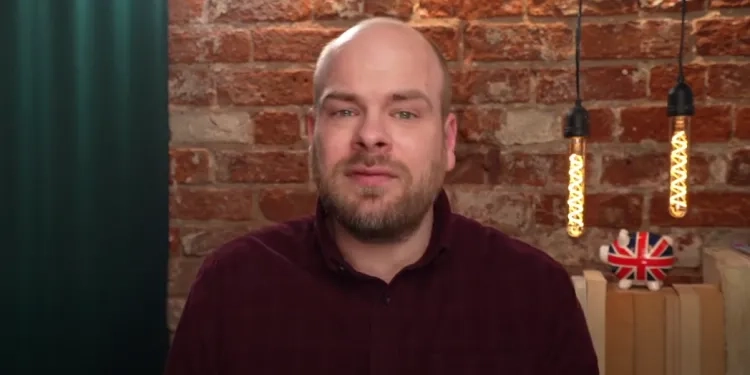
What Happens to Tax Debt After Death? (UK Laws)
Relevance: 47%
-

What should business owners expect from income tax changes in 2026?
Relevance: 45%
-
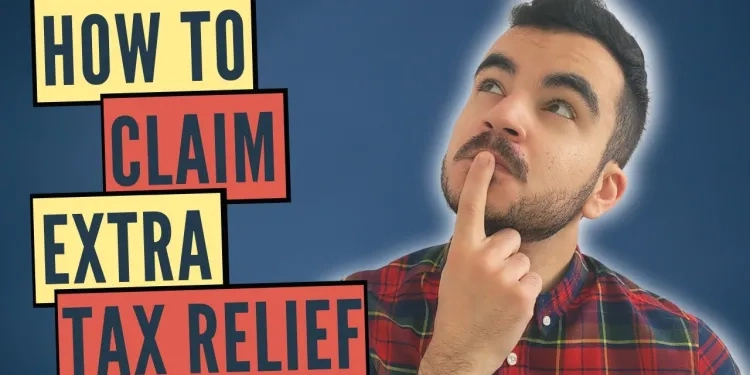
Higher Income Tax - How to Claim Pension Tax Relief | Extra 20% Boost
Relevance: 43%
-
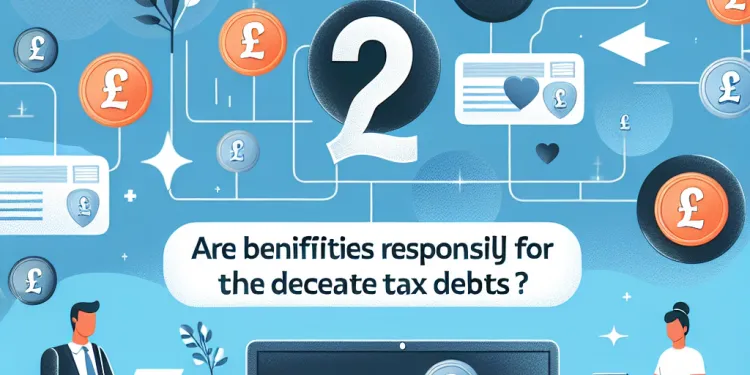
Are beneficiaries responsible for the deceased's tax debts?
Relevance: 43%
-

What is the role of an executor in handling tax debts?
Relevance: 41%
-

What if I'm self-employed and my income varies?
Relevance: 39%
-

Are there any other reliefs available from inheritance tax?
Relevance: 37%
-
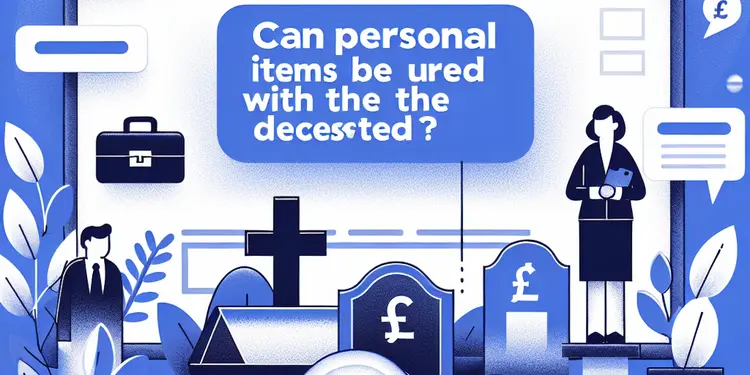
Can personal items be buried with the deceased?
Relevance: 37%
-

Does the HMRC Employer Bulletin provide guidance on compliance?
Relevance: 37%
-

Who needs to file a Self Assessment tax return?
Relevance: 37%
-

What is the wealth tax in the UK?
Relevance: 36%
-

Using 100% of your Second Income for a Mortgage Application
Relevance: 35%
-

What if I don't have all my tax documents?
Relevance: 35%
-

How does an ISA generate passive income?
Relevance: 35%
-

Does the HMRC Employer Bulletin cover changes in employment law?
Relevance: 35%
-

What is the HMRC Employer Bulletin?
Relevance: 35%
-

Why did I receive a tax refund letter from HMRC?
Relevance: 35%
-

How is the tax refund amount calculated?
Relevance: 34%
-

Is the HMRC Employer Bulletin relevant for small businesses?
Relevance: 34%
-

Is the HMRC Employer Bulletin free?
Relevance: 34%
-

What information do I need to complete my Self Assessment tax return?
Relevance: 34%
-

How are the topics for the HMRC Employer Bulletin chosen?
Relevance: 33%
-

Is there an income threshold for students to qualify for the payment?
Relevance: 33%
-
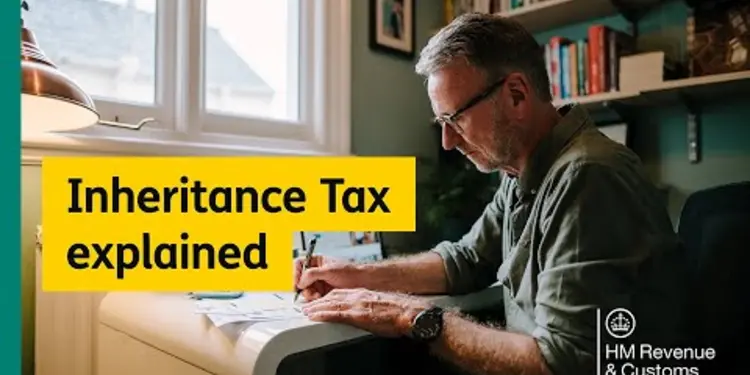
What is Inheritance Tax?
Relevance: 33%
-

How do I calculate my tax bill?
Relevance: 33%
-
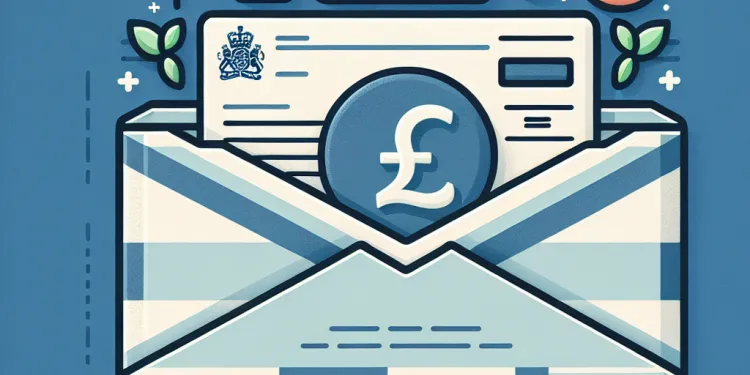
Is the tax refund amount taxable?
Relevance: 32%
-

What documents do I need to file my taxes online?
Relevance: 32%
-
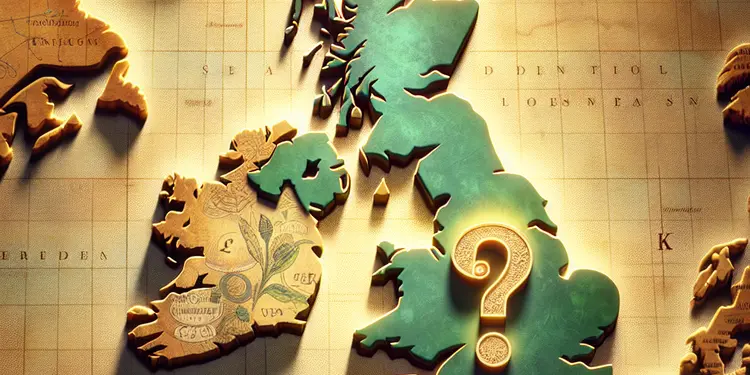
Which countries impose inheritance tax?
Relevance: 32%
Introduction to Deceased's Income Tax
When an individual passes away in the UK, there are several financial and administrative tasks that need to be addressed. One important aspect is the handling of the deceased person's income tax obligations. If the deceased person was employed at the time of their death, there are specific procedures to follow regarding their income tax liabilities and potential refunds. Understanding how to manage these tax matters is crucial for executors or personal representatives handling the deceased person’s estate.
Responsibilities of the Executor or Personal Representative
The person responsible for managing the deceased person’s estate is either an executor (if there is a will) or a personal representative (if there is no will). Part of their duties includes ensuring all taxes are paid, including income tax owed by the deceased. They are responsible for settling the deceased's financial affairs, which includes contacting HM Revenue and Customs (HMRC) to inform them of the individual's death.
Income Tax Calculation and Final Tax Return
Once HMRC is informed of the death, they will send a 'P800' tax calculation form if there is a need to reconcile the tax paid and tax owed for the year of death. It is important for the executor to determine whether the deceased person was due a refund or owed any taxes. If the deceased was employed, the executor should gather all relevant financial documents, such as the final payslip and P45, to assist in completing the final tax return, known as the SA 100 form, for the tax year in question. This will help ascertain if any income tax was overpaid or underpaid.
Paying Taxes Owed or Claiming a Refund
If it is determined that the deceased owed income tax, the amount should be paid from the estate. Conversely, if a refund is due, the executor must apply for this refund from HMRC. The refund will then be added to the deceased’s estate and can be distributed to beneficiaries according to the will or the rules of intestacy if no will exists. It is crucial for the executor to keep detailed records of all transactions related to the estate to ensure transparency and proper management.
Dealing with Employers and Final Salary
The deceased person's employer should be notified of their passing as soon as possible. The employer will issue a final payslip and P45, which summarizes the income earned and tax paid. These documents are vital for accurately completing the final tax return. The employer may also need to be contacted if the deceased was entitled to any remaining salary or benefits, which will form part of the estate.
Conclusion
In summary, dealing with a deceased person’s income tax obligations in the UK, especially if they were employed, involves several steps that must be carefully managed by the executor or personal representative. Ensuring that the correct taxes are paid, refunds are claimed, and all relevant parties are informed, helps in efficiently settling the deceased's tax affairs. Seeking professional advice from a tax advisor or solicitor may also be beneficial to navigate the complexities involved.
What Happens to Taxes When Someone Dies?
When someone dies in the UK, there are things to do with their money and taxes. One important job is taking care of their income tax. If they had a job when they died, there are special steps to follow. This helps to sort out any money they might owe or be owed by the tax office. The person who looks after things is called an executor, or a personal representative. They need to understand how to handle these tax matters.
What Does an Executor or Personal Representative Do?
An executor (if there is a will) or a personal representative (if there isn't a will) is in charge of handling the person’s money and things after they die. They must make sure all taxes are paid, including any income tax the person owed. They need to tell HM Revenue and Customs (HMRC) that the person has died. This is part of settling the person's financial affairs.
How to Work Out the Final Taxes
After telling HMRC about the death, a form called a 'P800' might be sent to help figure out if the right amount of tax was paid for the year the person died. The executor must check if the person should get a refund or if they owe more tax. If the person had a job, collect papers like the last payslip and the P45 form. This helps to fill out the final tax form, called the SA 100 form, for that year to see if too much tax was paid or not enough.
How to Pay Any Owed Taxes or Get a Refund
If the person owed tax, the executor pays it from the person's money. If there is a refund due, the executor asks HMRC for it. The refund becomes part of the money and things left behind, which is given to the people in the will or according to UK rules if there's no will. The executor must keep good records of all money transactions to do their job well.
Telling Employers and Dealing with Final Pay
The person’s employer needs to know they died. The employer sends a final payslip and a P45 form. These tell how much money was earned and how much tax was paid. These papers are important for the last tax form. The employer also needs to be asked if the person should get any more salary or benefits. This extra money is part of what they leave behind.
In Conclusion
To sum up, handling a person’s income tax after they die in the UK involves several orderly steps by the executor or personal representative, especially if they had a job. They need to pay taxes, get refunds, and inform all the right people. Asking a tax expert or lawyer for help can make this process easier.
Frequently Asked Questions
What happens to the income tax of an employed person after they pass away?
After a person passes away, their income tax obligations for the year of their death are typically handled by their estate or executor.
Who is responsible for filing the income tax return of a deceased person?
The executor or administrator of the deceased's estate is responsible for filing their final income tax return.
What is a final tax return?
A final tax return is the income tax return filed for the year in which the person passed away, covering any income earned up to the date of death.
Is it necessary to file a tax return for the deceased if there was no taxable income?
If the deceased had no taxable income or did not meet the filing threshold, a final tax return may not be required. It's best to consult with a tax professional.
What documents are needed to file a deceased person's final tax return?
You may need the deceased's W-2s, 1099s, previous tax returns, and any documents showing income and deductions up to the date of death.
Can funeral expenses be deducted on the deceased person’s income tax return?
Funeral expenses are typically not deductible on the deceased’s personal income tax return.
Do you need to notify the IRS when someone dies?
There is no formal requirement to notify the IRS of a person's death, but the final tax return must be filed.
What happens if the deceased person was owed a refund?
If the deceased was owed a refund, it can be claimed by the estate or beneficiaries by filing Form 1310 with the final tax return.
Are unpaid taxes of a deceased person forgiven?
Unpaid taxes are generally not forgiven and become liabilities of the estate.
Can survivors claim the deceased's tax credits and deductions?
The deceased person's credits and deductions up to the date of death can be claimed on their final return, but survivors cannot claim them on their personal returns.
What if the deceased owned a business?
If the deceased owned a business, additional forms may need to be filed. The executor should consult a tax professional.
How is the filing status determined for a deceased person's final tax return?
The filing status generally reflects the same as prior to death. If married and the spouse is alive, it may be ‘Married Filing Jointly’.
Can the deceased's spouse file a joint return for the year of death?
Yes, the surviving spouse can often file a joint return for the year of the spouse’s death.
What happens if someone dies owing back taxes?
The back taxes become a liability of the deceased's estate and must be settled before assets are distributed to the heirs.
Can penalties be waived for a deceased's tax return?
The IRS might waive penalties due to reasonable cause, such as the death of the taxpayer.
What address should be used for the deceased's final tax return?
The address used should be that of the executor, administrator, or person handling the estate.
Are there deadlines to file a final tax return for a deceased person?
The final tax return should be filed by the standard tax deadline of April 15 of the year following the year of death, unless an extension is filed.
Is it necessary to file state tax returns for a deceased person?
State tax obligations depend on the deceased's state of residence and applicable state laws.
Should changes in the will or beneficiaries be reported on the tax return?
The final tax return doesn't typically involve changes to beneficiaries or wills, but the estate tax return does if necessary.
How are joint income and assets handled when filing taxes after a spouse dies?
Joint income is typically reported on the final joint tax return, and assets may require special considerations regarding ownership and taxes.
What happens to a person's income tax after they die?
When someone who has a job dies, their family or helpers need to take care of their money and taxes. Here are some simple steps:
- Check their last payslip to see how much money they earned.
- Use this information to help fill out any tax forms they need.
- Contact the tax office if you need help or if you have questions. They can guide you on what to do.
- Consider using online tools like tax calculators to make things easier.
Once all tax forms are complete, any money owed to or from the tax office will be sorted out.
When someone dies, their taxes for that year are usually taken care of by the person who looks after their things. This person is called an executor.
Who Files the Tax Papers When Someone has Died?
When someone passes away, another person needs to handle their tax papers. Usually, it is a family member or a person called an "executor" who does this. An executor is someone chosen to take care of the person's things after they die.
If you have to do this, there are tools that can help. You can use a calendar to track what needs to be done. You can also ask a friend or family member for help.
Remember, this can be tricky, so it is okay to ask for help from a professional, like a tax advisor.
The person who takes care of things after someone dies needs to send the last tax form to the tax people.
What is a final tax return?
A final tax return is the last set of forms you fill out to tell the government how much money you made and paid in taxes. It happens when someone passes away or stops working.
Here's how to make it easier:
- Use pictures or drawings to show each step.
- Ask someone to help you read or fill out the forms.
- Take your time and do one step at a time.
A final tax return is a special tax form. It is used for the year when someone dies. It shows all the money they made up until they passed away.
Do you need to do taxes for someone who has died if they did not make any money?
If the person who died didn't earn enough money to pay taxes, you might not need to do a final tax return for them. But it's a good idea to talk to a tax expert to make sure.
What papers do you need to do taxes for someone who has died?
Here is a simple way to do this:
- Get the person's tax papers from last year.
- Find any income papers they got this year.
- Look for their bank papers and money papers.
- Check for any job or pension papers.
- If you're not sure, ask a grown-up for help or try using picture cards to help understand.
Remember, it’s okay to ask for help, and you can use a calculator or drawing to help with numbers.
You need some papers from the person who died. These are:
- W-2 forms (showing their job money)
- 1099 forms (showing other money they got)
- Old tax papers (showing what taxes they have paid before)
- Any papers that show what money they made and what they spent until they died.
Can you take funeral costs off the tax bill for someone who has died?
You usually cannot take off the cost of a funeral from the person’s income tax when they pass away.
Do you have to tell the IRS when someone dies?
When a person dies, you might have to tell the IRS. The IRS is the tax office in the United States. They collect money to help run the country.
If someone close to you has died, here's what you can do:
- Find their important papers, like their tax returns.
- You might need to fill out a tax form for them. This is called a "final return."
- You can ask for help. An adult, like a parent or a lawyer, can give you advice.
- Use a computer or a phone to look for more information about what to do. You can visit the IRS website or call them.
It’s okay to ask for help if you need it.
When someone dies, you don't have to officially tell the IRS. But you do need to file their last tax form.
What if the person who died was supposed to get money back?
If the person who died was supposed to get money back, the family or people who get their things can ask for this money. They need to fill out a paper called Form 1310 when doing the last tax papers for the person who died.
Do we still have to pay taxes if the person died?
If someone owes taxes and hasn't paid them, the taxes still need to be paid. These taxes are a part of the money that needs to be settled after a person has passed away.
Can family members get the tax benefits of someone who has died?
When someone dies, they have things called credits and deductions. These are like money helpers for taxes. They can use these helpers on their last tax form. But family members or people who are still alive cannot use these helpers on their own tax forms.
What happens if the person who died had a business?
If the person who died had a business, there might be extra forms to fill out. The person in charge should talk to a tax expert.
How do you decide the tax filing status for someone who has died?
When someone dies, they need a final tax return.
The "filing status" helps decide how much tax is owed.
To figure out the right filing status, you can look at their life before they died:
- Were they married?
- Did they have children?
- Did they live alone?
It is helpful to ask a tax expert or use a tax program for help. They can guide you.
The same filing status as before the person died is usually used. If the person was married and their husband or wife is still alive, they might use 'Married Filing Jointly'.
Can a husband or wife fill out taxes together after one has died?
Yes, if your husband or wife dies, you can usually still file taxes together for that year.
What if someone dies and still needs to pay taxes?
When someone dies and they owed taxes, those taxes need to be paid first before giving their things to family or friends.
Can you skip the fees for a dead person's tax papers?
The IRS can sometimes say "no" to penalties if there is a good reason. A good reason could be if the person who pays tax has died.
What address should we use for the last tax report of someone who has died?
When someone dies, we need to send a last tax report for them.
We need to know the right address to use for this report.
If you are not sure, you can ask someone for help. You could ask a family member, a friend, or a tax helper to guide you.
Use the address of the person looking after the estate. This could be the executor, administrator, or another helper.
Does a final tax form for someone who has died need to be sent by a certain time?
You need to send in the last tax papers by April 15. This is for the year after the person has passed away. If you need more time, you can ask for extra time.
Do you need to fill out state tax forms for someone who has died?
State taxes are different in each place where someone lives. What taxes you have to handle when someone dies depends on the rules in that place.
Do I need to tell the tax office if I change my will or the people who get my money?
The last tax form is not about changing who gets your things when you pass away. But, when we talk about the tax for everything you own, changes can be made if needed.
What happens with money and property when you pay taxes after your husband or wife dies?
When two people earn money together, they usually need to tell the government about it on one final form called a tax return. They also need to think carefully about who owns their things and how much tax they should pay.
Useful Links
This website offers general information and is not a substitute for professional advice.
Always seek guidance from qualified professionals.
If you have any medical concerns or need urgent help, contact a healthcare professional or emergency services immediately.
Some of this content was generated with AI assistance. We’ve done our best to keep it accurate, helpful, and human-friendly.
- Ergsy carfully checks the information in the videos we provide here.
- Videos shown by Youtube after a video has completed, have NOT been reviewed by ERGSY.
- To view, click the arrow in centre of video.
- Most of the videos you find here will have subtitles and/or closed captions available.
- You may need to turn these on, and choose your preferred language.
- Go to the video you'd like to watch.
- If closed captions (CC) are available, settings will be visible on the bottom right of the video player.
- To turn on Captions, click settings .
- To turn off Captions, click settings again.
More Items From Ergsy search
-

What happens to a deceased’s Income Tax if they were employed?
Relevance: 100%
-

Is it necessary to complete a final tax return for the deceased?
Relevance: 66%
-

Who is responsible for paying the deceased’s tax debts?
Relevance: 60%
-

What should I do if I need help managing the tax affairs of the deceased?
Relevance: 58%
-

Can the executor use the deceased's assets to pay tax debts?
Relevance: 57%
-

What taxes need to be paid from the deceased’s estate?
Relevance: 52%
-

What are HMRC Income Tax Changes in April 2026?
Relevance: 49%
-

What are the HMRC income tax changes coming into effect in April 2026?
Relevance: 49%
-

How does a wealth tax differ from an income tax?
Relevance: 48%
-

Could there be a reduction in the basic rate of income tax by 2026?
Relevance: 48%
-

Do I need to declare my ISA income on my tax return?
Relevance: 47%
-

Will income thresholds for tax reliefs be revised in 2026?
Relevance: 47%
-

What Happens to Tax Debt After Death? (UK Laws)
Relevance: 47%
-

What should business owners expect from income tax changes in 2026?
Relevance: 45%
-

Higher Income Tax - How to Claim Pension Tax Relief | Extra 20% Boost
Relevance: 43%
-

Are beneficiaries responsible for the deceased's tax debts?
Relevance: 43%
-

What is the role of an executor in handling tax debts?
Relevance: 41%
-

What if I'm self-employed and my income varies?
Relevance: 39%
-

Are there any other reliefs available from inheritance tax?
Relevance: 37%
-

Can personal items be buried with the deceased?
Relevance: 37%
-

Does the HMRC Employer Bulletin provide guidance on compliance?
Relevance: 37%
-

Who needs to file a Self Assessment tax return?
Relevance: 37%
-

What is the wealth tax in the UK?
Relevance: 36%
-

Using 100% of your Second Income for a Mortgage Application
Relevance: 35%
-

What if I don't have all my tax documents?
Relevance: 35%
-

How does an ISA generate passive income?
Relevance: 35%
-

Does the HMRC Employer Bulletin cover changes in employment law?
Relevance: 35%
-

What is the HMRC Employer Bulletin?
Relevance: 35%
-

Why did I receive a tax refund letter from HMRC?
Relevance: 35%
-

How is the tax refund amount calculated?
Relevance: 34%
-

Is the HMRC Employer Bulletin relevant for small businesses?
Relevance: 34%
-

Is the HMRC Employer Bulletin free?
Relevance: 34%
-

What information do I need to complete my Self Assessment tax return?
Relevance: 34%
-

How are the topics for the HMRC Employer Bulletin chosen?
Relevance: 33%
-

Is there an income threshold for students to qualify for the payment?
Relevance: 33%
-

What is Inheritance Tax?
Relevance: 33%
-

How do I calculate my tax bill?
Relevance: 33%
-

Is the tax refund amount taxable?
Relevance: 32%
-

What documents do I need to file my taxes online?
Relevance: 32%
-

Which countries impose inheritance tax?
Relevance: 32%


